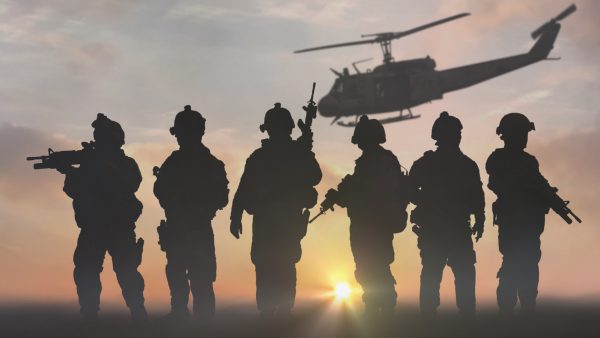Looking for Expert-Level VA Claim Answers?📱Call Us Now! 737-295-2226
Have you asked yourself, “Do I need a VA buddy letter?” If so, you’re not alone.
Many veterans filing VA claims wonder if a statement from someone close to them could positively impact the decision of their VA claim.
In reality, it depends on your situation, especially since the VA doesn’t require buddy letters.
In this post, we will break down the VA buddy letter. We’ll examine common scenarios when buddy letters can be beneficial and when it’s best to skip them.
Let’s jump to it.
Summary of Key Points
-
A VA buddy letter from a co-worker, spouse, friend, or fellow service member may strengthen your claim.
-
Avoid conflicting information from lay witnesses to prevent doubt, which may slow down your VA claim.
-
A buddy letter for PTSD from a fellow veteran can help add context and credibility to your VA claim.
-
Bottom Line: In most cases, you can skip the buddy letter.
Table of Contents

Deserve a Higher VA Rating?
Book a no-obligation VA Claim Discovery Call with an experienced team member. We’ll review your situation, spot what the VA may have missed, and help you map out a strategy to unlock the VA disability rating and tax-free compensation you’ve earned for your service. Click the red button below to book your call.
What is a VA Buddy Letter?
A VA buddy letter, or VA buddy statement, is a lay witness statement written by a spouse, co-worker, fellow service member, friend, or employer—someone with first-hand knowledge of the severity of your condition.
VA buddy letters may help fill in gaps that might be missing from medical records.
Buddy letters are meant to add credibility and context to your VA claim, so only ask someone with personal knowledge of your situation.
Is a Buddy Letter Important?
Sometimes—but not as often as we used to believe.
While we used to recommend VA buddy letters (or VA buddy statements) from first-hand witnesses, we’ve seen buddy letters “muddy the waters” and hurt more than help in many cases.
Conflicting information from lay witnesses (and that’s often what happens) can slow down your claim and even lead to denial.
There are specific cases where including a buddy statement may be beneficial to winning your VA claim, which we’ll discuss now.

When Should I Use a VA Buddy Letter?
While many veterans can skip obtaining a buddy letter to support a claim, there ARE certain cases where a buddy letter might strengthen your claim.
Claims that may benefit from a buddy letter include:
Combat-Related Claims
Often, combat situations don’t afford the time to see a corpsman or medic to obtain medical evidence of an in-service event or stressor. Sometimes, an injury or event doesn’t require a veteran to seek immediate medical treatment for what eventually becomes a ratable disability.
In this case, a credible statement can strongly support a winning claim. A buddy letter from a fellow service member who was there and witnessed the incident can make the difference between a grant and a denial.
Lost Medical Records
After several years, most medical facilities destroy medical records, but sometimes “lost medical records” means a medical record never existed.
If medical records are no longer available, you can obtain credible statements to gap the dates of treatment.
If you suffered an injury or event in service that went unrecorded, or those records were destroyed, a statement from a buddy who served with you and witnessed the event or injury must be weighed and considered by the VA when determining service connection.
Historical Narrative
In some instances, having someone (like a friend or family member) who knew you before your military service and observed you after service can be beneficial.
This can be especially true with mental health-related disability claims.
Specifically, a witness can provide a historical narrative of a time when the veteran had difficulty coping with stress at work, having a good relationship with co-workers, or accepting direction from an authoritative figure.
A close friend or relative can provide information about the veteran’s difficulties with day-to-day activities, hygiene, isolation, or any other change.
See Related: 4 Tips to Writing a Strong Buddy Letter (with Examples)
What to Use Instead of Buddy Letters
A Statement in Support of Claim (personal statement) can be beneficial documentation to strengthen your claim.
A well-done Statement in Support of Claim can help complete what is known as a fully developed claim—a well-supported, complete presentation of your case that is more likely to win and tends to be approved faster.
(We specialize in helping veterans build and win claims this way!)
For a Statement in Support of Claim, you’ll need to use VA Form 21-4138. This form is vital in providing key supporting evidence for most claims.
The Bottom Line
In most cases, you can skip the buddy letter. In the same way that eyewitness accounts can vary from person to person, buddy letters may cause more harm than good by introducing confusion or doubt as to the truth or accuracy of a claim.
-
Pro Tip: The last thing you want is to make it more difficult for the VA adjudicator to determine facts about your condition.
By sticking to your own well-crafted personal statement, you control the narrative, the wording, and the details and can ensure consistency and clarity.

Frequently Asked Questions (FAQs)
Is a buddy letter for PTSD important?
A buddy letter for PTSD could be a valuable piece of evidence when submitting your VA claim, especially if it’s from a fellow veteran who can provide an eyewitness account of the events that led to your PTSD.
Can a spousal buddy letter help?
Absolutely. Your spouse is a fitting example of someone who has first-hand knowledge of your condition and can write a powerful spousal buddy letter.
Who should write a VA buddy letter?
The most credible people to write a VA buddy letter are:
- Fellow service members
- Family members
- Friends
- Spouse and adult children
- Caregivers
- Pastor
- Teacher
- Co-workers
Note: VA buddy letters must be written by someone 18 or older.
RELATED: VA Buddy Letter Examples
NEED MORE ASSISTANCE?
Most veterans are underrated for their disabilities and, therefore, not getting their due compensation. At VA Claims Insider, we help you understand and take control of the claims process so you can get the rating and compensation you’re owed by law.
Our process takes the guesswork out of filing a VA disability claim and supports you every step of the way in building a fully-developed claim (FDC)!
If you’ve filed your VA disability claim and have been denied or have received a low rating—or you’re unsure how to get started—reach out to us! Take advantage of a VA Claim Discovery Call. Learn what you’ve been missing—so you can FINALLY get the disability rating and compensation YOU DESERVE!

Kelly Olone
Kelly Olone is a military spouse who earned her degree in Psychology from Florida International University. After working in the non-profit sector for several years, she turned to her passion for writing. She aims to contribute to a better understanding of the valuable benefits that veterans deserve. As a mom, Kelly navigates the delicate balance between deadlines and bedtime stories with finesse.



